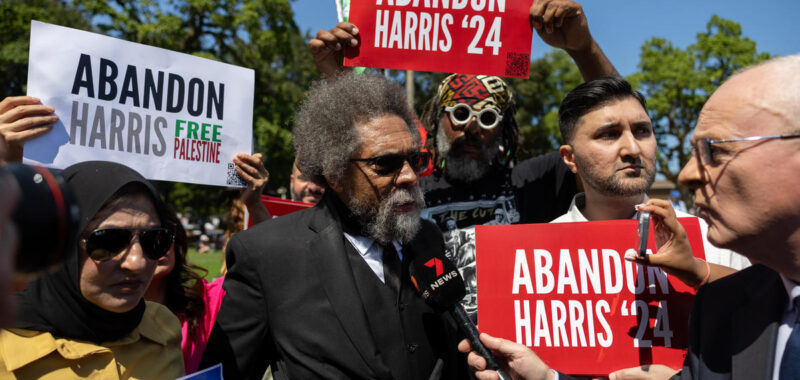Washington — Justice Samuel Alito on Thursday rejected a request from progressive activist Cornel West to direct Pennsylvania election officials to post notices informing voters at polling locations statewide on Election Day that West is a presidential candidate and his name can be written in on ballots.
West, a third-party candidate for the presidency, sought emergency relief from the nation’s highest court Wednesday, less than a week before Election Day and as more than 1.5 million voters in Pennsylvania have already cast their ballots by mail.
As the Nov. 5 election draws near, the Supreme Court has been asked to intervene in a growing number of disputes. Just this week, it rejected a bid by independent presidential candidate Robert F. Kennedy, Jr., to have his name removed from the Wisconsin and Michigan ballots, and allowed Virginia officials to resume a program to remove from its voter rolls roughly 1,600 people that the state suspects are noncitizens.
West’s request arose from his unsuccessful effort to have his name listed on the Pennsylvania general election ballot. His name is included on the ballots in the battleground states of Michigan, North Carolina and Wisconsin.
After his nomination papers were rejected by the state, the activist filed a lawsuit in federal district court in September arguing that the state’s application of its election code violates the Constitution. Both the district court and U.S. Court of Appeals for the 3rd Circuit ruled for the state, relying on a legal principle that cautions courts against changing election rules too close to an election to avoid confusing voters and election officials.
West then asked the Supreme Court to step in, arguing that Pennsylvania’s election rules restrict access to the ballot for minor-party candidates in violation of his First Amendment rights.
Allowing the Pennsylvania secretary of state’s “unlawful conduct to preclude candidates access to the ballot in violation of their constitutional rights simply because election officials’ delay pushes a dispute close to an election is anathema to the principles embodied by the First and Fourteenth Amendments,” West’s legal team said.
They argued that the lower court’s decisions were wrong, in part because the addition of a candidate to the ballot advances the nation’s commitment to robust debate by “breaking the monopoly on existing political parties.”

